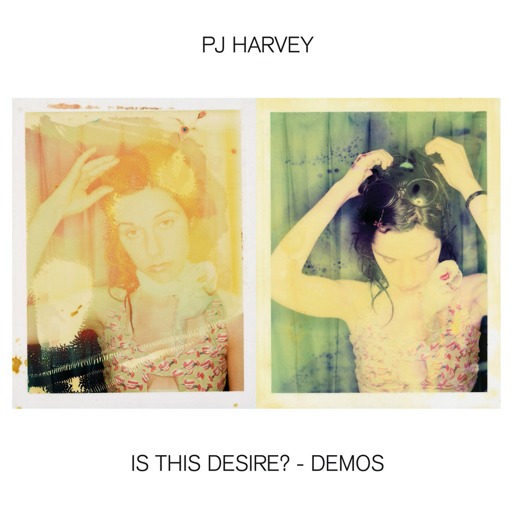Is This Desire?, the fourth studio album by English singer/songwriter PJ Harvey, was originally released in 1998 to immense critical acclaim, ultimately landing Harvey a Grammy nomination for Best Alternative Music Performance that same year. Her biggest asset, aside from intensely descriptive songwriting skills, has always been her sumptuous vocals.
Harvey’s 1992 debut album, Dry, showcased all of her promise right out of the gate. It set the bar high for an artist whose career would span three decades. And while her follow-up LPs, Rid of Me (1993) and To Bring You My Love (1995), showed Harvey’s sonic and lyrical expansiveness, Is This Desire? honed in on her grand ambitions with its subjugated undertones. A new reissue featuring the demos for Is This Desire? is out on Jan. 29, and will remind fans of the magic Harvey effortlessly brings to each and every one of her projects.
Opening track “Angelene” describes the justified hopelessness of a sex worker who is cognizant of her grim reality. But just when it seems the song couldn’t become any bleaker, its demo offers a more austere version where organ and piano are replaced with the subdued rhythms of a drum machine. Not only does it give the track a more experimental sound, it also amplifies the emotion the singer dishes out.
The breathy and carnal atmosphere of “The Wind” is a climactic thrill ride; its chords heighten the stakes on an already-volatile song. The gritty sonics of “My Beautiful Leah” are intact on the original version, but the song is even more bombastic and blaring when stripped down to the bones. The same can be said for “A Perfect Day Elise,” which balances Harvey’s withering tenor with loud and unrelenting instrumentation. “Catherine” stays true to form as haunting chants of “I damn to hell every second you breathe” remain obscenely chilling on both versions.
The tender disposition of “Electric Light” is juxtaposed with the pulsating “The Garden,” even though the latter is more comparable to a frenetic trip-hop excursion on the official version of the song. Harvey vocally strains herself on “Joy” to convey unfettered amounts of sentimentality while “The River” is quieter in its original execution; without its stirring piano, it’s a slinkier and slightly more somber ode to undoing. “No Girl So Sweet” is still rough around the edges as Harvey sonorously claws her way through the track.
The album’s title track is a sluggish and cerebral peek into Harvey’s most ambiguous creative whims. The song’s main characters, Joe and Dawn, are navigating their desires through grand gestures and phrases (“Coldness cooled their desire / And Dawn said, “Let’s build a fire”) with which they explore their attraction to each other. Even though Is This Desire? is over 20 years old, its artistry is unwavering, and this reissue reaffirms that. Harvey’s ongoing reissue series is a bold testament to her evolution.
Charting Harvey’s depth and growth through various album demos is an exercise in reverence. Through stark renditions of some of her most notable songs, we are able to fully absorb her endless imagination, as well as her undeniable talent. Even when her words express absolute melancholy, Harvey’s palatial and mesmerizing voice is immediately enthralling. Is This Desire? simply stands the test of time and reiterates that the singer can be as spirited as she is sweet.
Candace McDuffie is a culture writer whose work has appeared in outlets like Rolling Stone, MTV, NBC News, and Entertainment Weekly. You can follow her on Instagram @candace.mcduffie.




